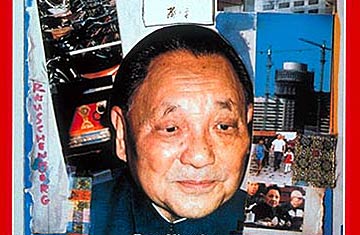
(8 of 17)
Actually the price reforms have much further to go. China at the moment has a two-tier system of state-set and market prices, sometimes on the same goods. Vice Premier Li Peng estimates that Peking still fixes prices on 70% of the products sold by state industries. There are other reminders of the heavy presence of the state. At Zhongshan University in Canton, 30% of the graduates are assigned to their first jobs by the State Labor Ministry in Peking. The remaining 70% are placed by university authorities after consultation with state industries and agencies; the graduates' wishes are considered but do not always prevail. That is a marked improvement over a few years ago when the state made all assignments, but it underscores an important point: whatever the Chinese system might be called, it is a long way from anything that could be termed capitalism.
But it is at least a system that can cooperate with real, full-blown capitalism to a greater degree than any other in the Communist world. In the centuries-old Chinese debate between those who are eager to learn from the more modern world outside and those who shun it, Mao came down completely on the side of xenophobia and cut China off almost totally from foreign goods, money and culture. Deng has opened the country to imports of everything from machinery to the ubiquitous tape recorders and portable stereos. He has proclaimed an "open-door policy" toward foreign investment--unperturbed by the reminiscences the phrase evokes of an era early in the century when foreigners enjoyed extra-territorial privileges bitterly resented by many Chinese.
The door certainly is not that far open yet; Deng's policy might be better described as an air lock through which China lets in carefully selected foreign investments. Still, more than 2,000 foreign businesses had put some money into China by the end of 1984. Most were owned by the overseas Chinese, who have prospered throughout Asia, but the total includes 70 U.S., 67 Japanese and 42 British, West German or French companies. A burgeoning trend is toward ventures jointly owned by Chinese state enterprises and foreign firms; 687 were registered in the first half of 1985 alone, or almost as many as in all of 1984. Peking has even allowed 94 factories wholly owned by foreigners to be built. They include 3M China Ltd., a fully owned subsidiary of Minnesota Mining and Manufacturing Corp., which has set up a factory near Shanghai to make insulation tapes and other products.
The stated reason is to speed China's modernization by welcoming foreign capital, technology and management methods. To that end, China has set up four "special economic zones" where foreign investors get unusual privileges to import raw materials and semifinished goods and, to a certain degree, hire workers. But many other foreign investments are simply introducing the Chinese to some amenities, real or alleged, of life elsewhere: fast food, Coca-Cola, Pierre Cardin fashion shows, golf courses, amusement parks, even a Peking branch of Paris' famed Maxim's restaurant.
